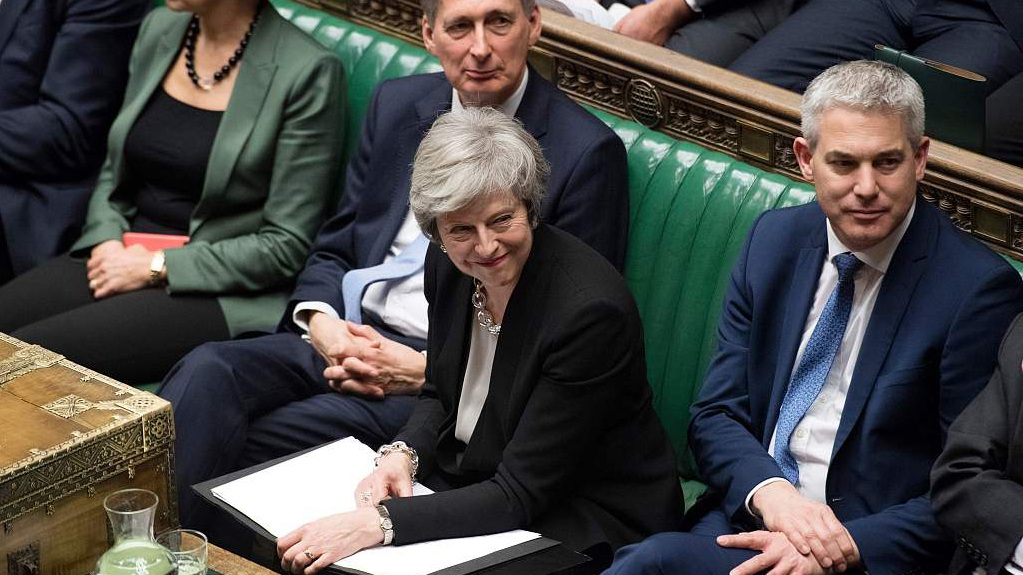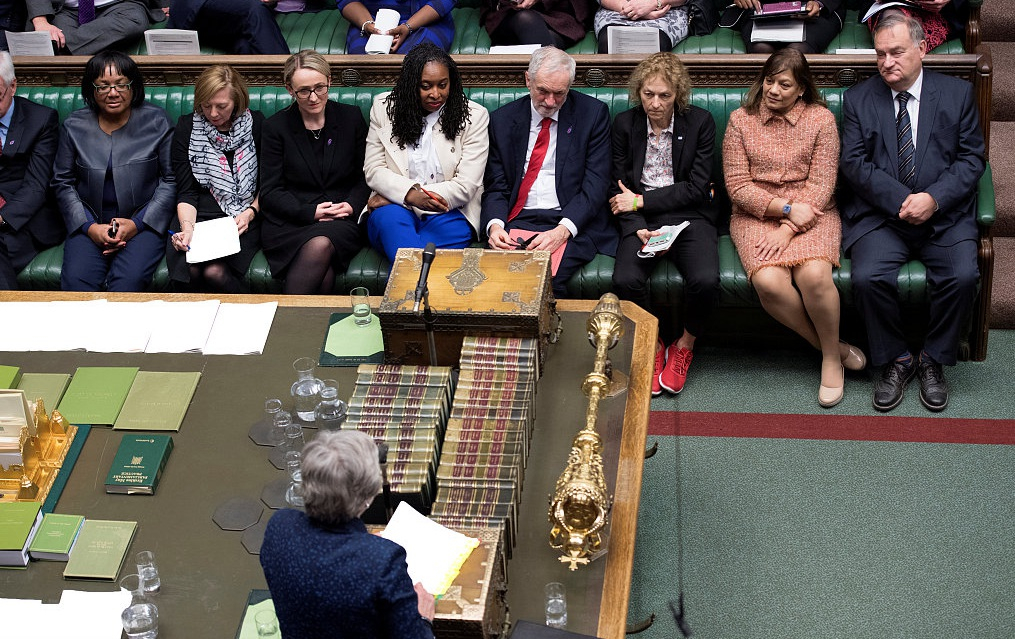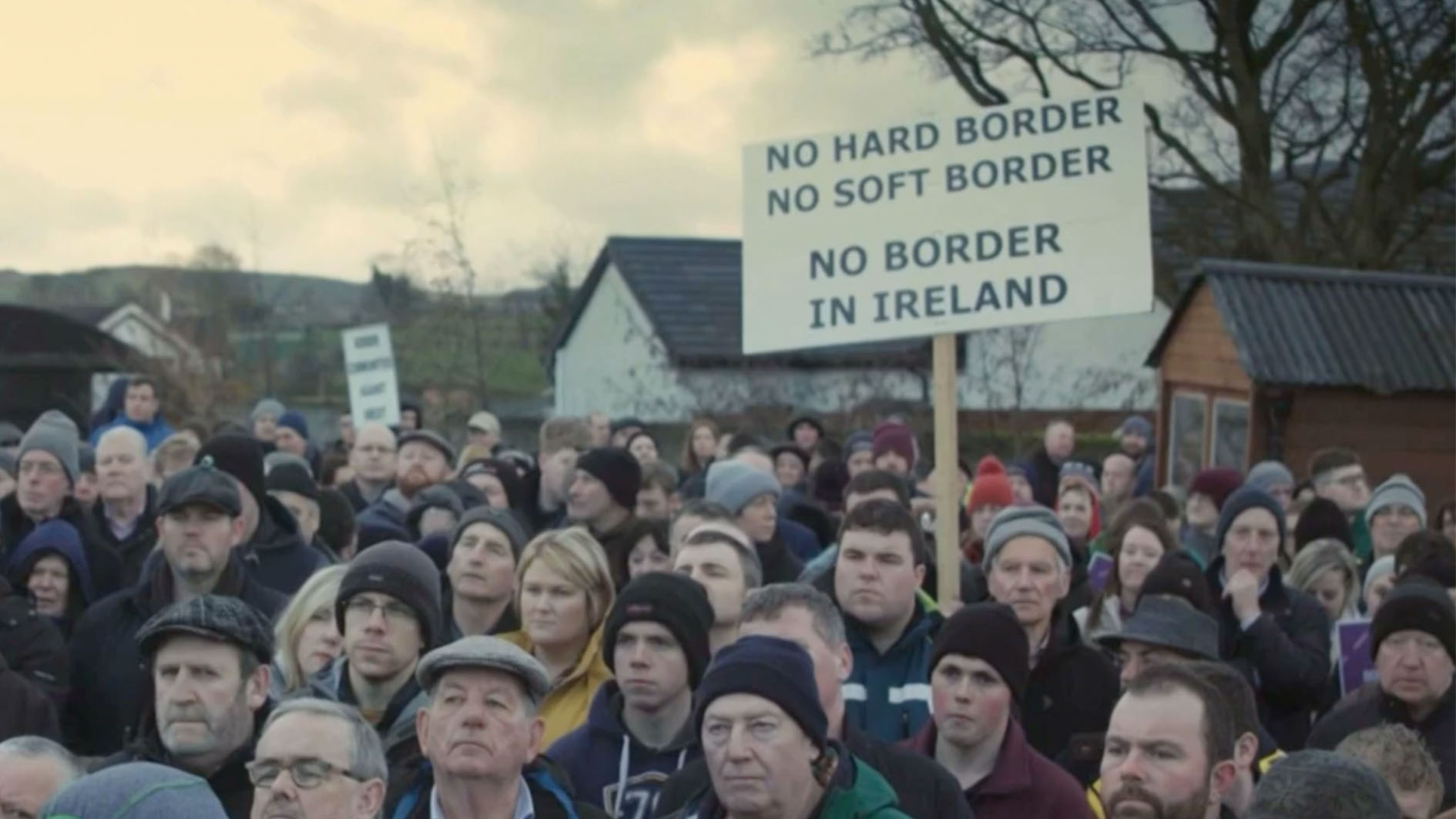
Europe
07:45, 30-Jan-2019
Theresa May wins mandate to reopen Brexit deal
Updated
19:57, 30-Jan-2019
CGTN
02:02

British Prime Minister Theresa May won parliament's backing on Tuesday to renegotiate her Brexit deal – a major policy reversal that sets up a new standoff with the EU after it ruled out any change.
The pound plunged on fears of a no-deal scenario as MPs voted through an amendment saying they would only support a divorce deal if the controversial "backstop" clause to keep the Irish border open was removed.
A spokesman for EU leader Donald Tusk said the divorce deal was "not open for renegotiation" while French President Emmanuel Macron said it was the "best agreement possible."
Tusk and May will have a phone call about Brexit at 17:45 GMT on Wednesday.
Similarly, the head of the European Parliament, Antonio Tajani, said Wednesday that the 27 EU states remaining in the bloc after Brexit were still united on the matter and would not renegotiate a divorce deal with London.
"It is difficult to imagine we can renegotiate a deal (on UK withdrawal) that has been already approved by EU member states."
"The 27 governments remain united over Brexit," Tajani told reporters. "I hope we can avoid a hard Brexit."
MPs also voted in favor of a non-binding measure that "rejects the United Kingdom leaving the EU without a Withdrawal Agreement."
But they failed to vote through a more important plan, backed by European supporters, that would have tried to force through a Brexit delay if no new deal with the EU emerged by February 26.

Jeremy Corbyn, leader of the Labour Party, looks on as Britain's Prime Minister Theresa May speaks during a session at the Parliament in London, Britain, January 23, 2019. /VCG Photo
Jeremy Corbyn, leader of the Labour Party, looks on as Britain's Prime Minister Theresa May speaks during a session at the Parliament in London, Britain, January 23, 2019. /VCG Photo
May now faces a formidable challenge convincing Brussels to re-open talks that took 18 excruciating months to conclude.
She said the parliament's approval of the backstop amendment gave her the "mandate" to "seek to obtain legally binding changes to the withdrawal agreement." But she conceded that there was "limited appetite" in the EU for renegotiation.
"It won't be easy," said May. "But in contrast to a fortnight ago, this house has made it clear what it need to approve the withdrawal agreement."
Playing for time?
Yet analysts struggled to see how May could convince her EU counterparts to agree to any changes.
"The only strategy I can see behind all this is the prime minister uses this to finally prove to all but her most recalcitrant backbenchers that the backstop cannot be renegotiated," King's College London professor Anand Menon said.
Read more:
"She is going to have to come back definitely and say this deal isn't on offer," Menon added.
University College London professor Morten Ravn agreed that May appeared to be playing for time.
"May won support for an amendment that she probably expects she cannot deliver on in the hope that parliament will support her deal last minute in order to avoid no-deal Brexit," Ravn said.
A no-deal Brexit could revive barriers between Ireland and Northern Ireland
Down a country lane, little known to those, not from these parts, is the border separating Northern Ireland from the Irish Republic. Road traffic signs are the only clues to the location.
03:03

In the 1960s, Northern Ireland was plunged into a war between the Republicans and the unionists and by the 1970s, the British army had established checkpoints, effectively sealing the border to restrict the movement of paramilitaries.
Today's open borders are part of the legacy of the 1998 Good Friday Peace Agreement. The people of the border communities fear a return to the past in the event of a no-deal Brexit.
Ahead of a key Brexit vote in Westminster, border communities are making their voices heard.
“We'll not accept a border on this island,” said the speaker at one rally. “That border should be in the Irish sea. Theresa May sort out your own problems in your own country.”
Today, Northern Ireland's demographic is more evenly split between Catholics and Protestants.
With the prospect of an uncertain future under Brexit, calls for reunification with the Republic are gaining traction.
(With input from AFP, Reuters)

SITEMAP
Copyright © 2018 CGTN. Beijing ICP prepared NO.16065310-3
Copyright © 2018 CGTN. Beijing ICP prepared NO.16065310-3